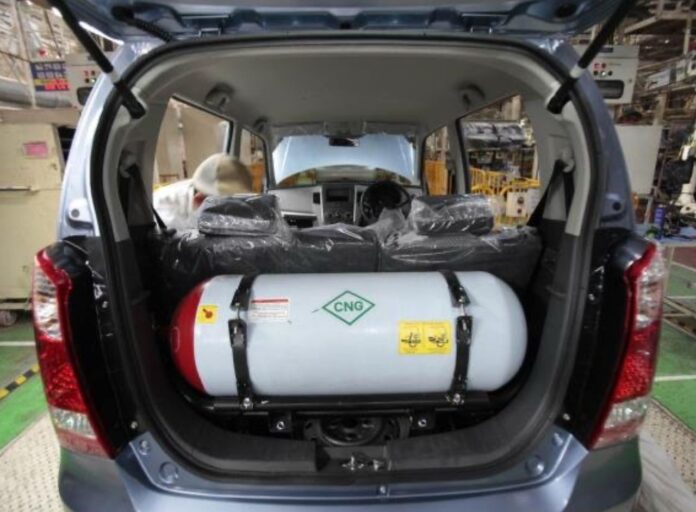By Hauwau Shehu Maikeffi
In a strategic move to harness Nigeria’s vast natural gas reserves and promote cleaner energy alternatives, the Presidential Compressed Natural Gas Initiative (PCNGI) has unveiled plans to roll out at least 150 new Compressed Natural Gas (CNG) refueling stations across the country within the next 18 months. This ambitious endeavor aims to significantly reduce transportation costs and environmental pollution by encouraging the adoption of CNG as a viable fuel source.
Michael Oluwagbemi, the Chief Executive of PCNGI, announced that the initiative will collaborate with private sector partners to establish these refueling stations. The deployment strategy includes:
•NNPC’s Contribution: The Nigerian National Petroleum Corporation (NNPC) has already operationalized 12 sites, with an additional eight slated for completion this quarter. Furthermore, approvals have been secured for 100 more stations to be developed over the next 18 to 24 months.
•NIPCO’s Efforts: NIPCO has imported equipment for 32 daughter station sites, with 22 currently operational and eight under construction.
•Bovas and AY Shafa’s Involvement: Bovas is constructing eight stations, while AY Shafa has completed one station and has nine more under construction.
•Other Participants: Companies such as Ibile Oil and Gas, MBH, and Mikano are also investing in both daughter and mother stations, contributing to the nationwide expansion of CNG infrastructure.
In light of past safety incidents, notably the CNG vehicle explosion in Benin City in October 2024, Oluwagbemi emphasized the importance of adhering to safety standards. He attributed the incident to unauthorized fabrication of CNG cylinders by economic saboteurs and assured that measures are being implemented to prevent such occurrences. The forthcoming National Gas Vehicle Monitoring System (NGVMS) will ensure that only properly labeled and accredited vehicles with certified tanks are refueled, thereby enhancing safety protocols.
The transition to CNG is projected to offer substantial economic benefits, including a potential 40% reduction in transportation costs for vehicle owners. Additionally, CNG is recognized for its lower emissions compared to traditional fuels, aligning with global efforts to combat climate change. The initiative also aims to create employment opportunities through the establishment of conversion workshops and refueling stations.
Despite the outlined benefits, the initiative faces challenges such as limited public awareness, safety concerns, and the need for extensive infrastructure development. The government is addressing these issues through public sensitization campaigns and by ensuring strict compliance with safety regulations. Building public trust is crucial for the widespread adoption of CNG as a preferred fuel alternative.
The PCNGI’s plan to establish 150 CNG refueling stations within 18 months marks a significant step towards diversifying Nigeria’s energy portfolio and promoting sustainable transportation solutions. Through strategic partnerships and a focus on safety and public awareness, the initiative seeks to leverage the country’s abundant natural gas resources to drive economic growth and environmental sustainability.
This report is based on information from the Presidential CNG Initiative and related sources.










